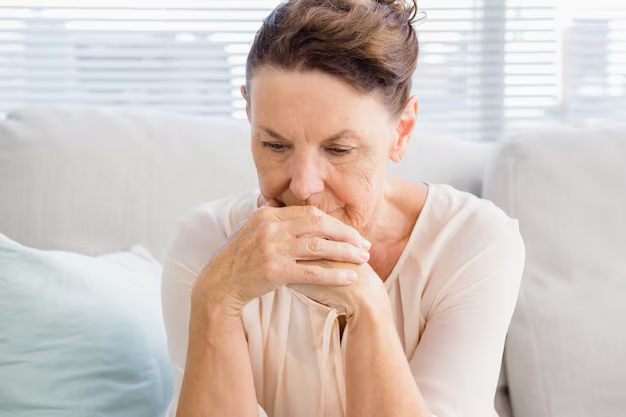Understanding Pneumonia: Can It Resolve on Its Own?
Pneumonia is an illness that often catches people off guard. Its symptoms can vary from mild to severe, leaving many to wonder if it can resolve on its own or if medical intervention is necessary. This article aims to unravel the complexities of pneumonia, addressing its causes, symptoms, and natural progression, while exploring whether it can self-resolve and under what circumstances medical treatment is advisable.
What is Pneumonia?
Pneumonia is an infection that inflames the air sacs in one or both lungs. These air sacs may fill with fluid or pus, causing symptoms such as coughing, fever, chills, and difficulty breathing. However, not all pneumonia is the same, which brings us to the different types that one might encounter.
Types of Pneumonia
Bacterial Pneumonia: This is one of the more common types, usually caused by the bacterium Streptococcus pneumoniae. It often results in intense symptoms and may require antibiotics.
Viral Pneumonia: Often results from the influenza virus or other viruses. Symptoms can be less severe than bacterial pneumonia, but it can lead to serious complications if not monitored.
Mycoplasma Pneumonia: Known as atypical pneumonia; it has less aggressive symptoms and can sometimes be mistaken for the common cold.
Aspiration Pneumonia: Occurs when a person inhales food, drink, vomit, or saliva into their lungs, thus introducing bacteria.
Fungal Pneumonia: Less common and usually affects individuals with weakened immune systems.
Understanding the type of pneumonia is crucial in determining the course of its progression and the appropriate treatment.
Can Pneumonia Resolve Without Treatment?
The idea of pneumonia resolving on its own can be both reassuring and risky. The possibility largely depends on the type of pneumonia and the individual’s health status.
Factors Influencing Self-Resolution
Immune System Strength: A robust immune system can sometimes manage to overcome mild viral pneumonia without medical intervention. Rest, adequate hydration, and nutrition can aid the immune system.
Type of Pneumonia: Some forms, particularly mild viral pneumonia, might not require antibiotics and can resolve with symptomatic care.
Age and Health: Healthy adults might see a faster recovery compared to young children, elderly individuals, or those with preexisting health conditions who are at higher risk.
Potential Risks of Ignoring Pneumonia
Even if mild pneumonia could resolve on its own, ignoring it can lead to complications. Without proper care, pneumonia might progress or result in severe health issues, such as:
Respiratory Failure: The lungs may fail to oxygenate the blood.
Sepsis: An extreme response to infection that could lead to organ failure.
Lung Abscess: A pus-filled area in the lungs.
Thus, even when symptoms appear manageable, seeking medical evaluation can prevent these complications.
Recognizing the Symptoms: When to Seek Help
Understanding the symptoms is vital to deciding whether pneumonia can be monitored at home or requires immediate medical attention.
Key Symptoms
- Persistent Cough: Often producing phlegm.
- Fever and Chills: Indicative of infection in the body.
- Shortness of Breath: Difficulty in breathing signals the need for medical assessment.
- Chest Pain: Especially sharp pain when inhaling or coughing.
- Fatigue and Muscle Pain: General symptoms that can be exacerbated with pneumonia.
If these symptoms escalate or if there's difficulty in breathing, bluish skin due to lack of oxygen, or a high fever that doesn't subside, it's essential to consult a healthcare professional.
Medical Diagnosis and Treatment Options
Diagnostic Procedures
Doctors typically diagnose pneumonia through:
Physical Exam: Listening to the lungs with a stethoscope.
Chest X-ray: Helps ascertain the extent of infection.
Blood Tests: Determines the type of pathogen causing the infection.
Sputum Test: Examining mucus to identify the infectious organism.
Treatment Modalities
Antibiotics: Commonly used for bacterial pneumonia.
Antivirals: May be prescribed for viral pneumonia.
Supportive Care: Oxygen therapy and fluids to maintain body function.
Over-the-Counter Medications: To manage symptoms like fever and cough.
Even if pneumonia has the potential to resolve, completing prescribed treatments ensures efficient recovery and minimization of complications.
Prevention: Key to Avoiding Pneumonia
Taking preventive measures is often more effective than treatment. Here are some strategies:
Vaccinations: The flu vaccine and pneumococcal vaccine are crucial preventive measures.
Hand Hygiene: Regular handwashing can prevent infections.
Healthy Lifestyle: Ensuring a balanced diet, regular exercise, and adequate rest strengthens the immune system.
Avoid Smoking: Smoking can impair lung function, increasing pneumonia risk.
Supportive Care at Home
Where deemed safe, managing symptoms at home plays a critical role in recovery:
Rest: Essential for recovery.
Fluids: Help in loosening mucus.
Steam Inhalation: Relieves congestion.
Balanced Diet: Vitamins and minerals boost the immune system.
Looking Ahead: Empowerment Through Knowledge
Understanding whether pneumonia can resolve on its own involves grasping a complex web of symptoms, types, individual health status, and risks. While mild cases might be managed through self-care, professional consultation ensures safety and addresses potential complications effectively.
Ultimately, knowledge is power. Equipping oneself with information about the nature of pneumonia, its risks, and preventive measures not only facilitates recovery but also empowers readers to make informed decisions about their health.
Quick Reference Summary
- 🦠 Types of Pneumonia: Bacterial, Viral, Mycoplasma, Aspiration, Fungal.
- ⚠️ When to Seek Help: Difficulty breathing, chest pain, high fever.
- 💊 Treatment: Varies; antibiotics for bacterial, antivirals for viral, supportive care.
- 🛡️ Prevention: Vaccinations, hand hygiene, healthy lifestyle.
- 🔍 Recognize Symptoms: Persistent cough, fever, shortness of breath.
This guide serves as a basis for better understanding pneumonia and making well-informed health choices. 🌿

Related Articles
- a Typical Pneumonia
- Can a Cold Turn Into Pneumonia
- Can a Sinus Infection Turn Into Pneumonia
- Can Amoxicillin Cure Pneumonia
- Can Amoxicillin Treat Pneumonia
- Can Baby Oil Cause Pneumonia
- Can Bronchitis Turn Into Pneumonia
- Can Covid Turn Into Pneumonia
- Can Doxycycline Treat Pneumonia
- Can Flu Turn Into Pneumonia
